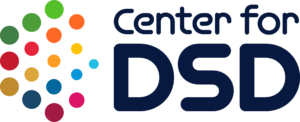The Conflict Sensitivity and Peacebuilding Training held at the Sapphire Hotel in Addis Ababa from February 22 to February 25, 2021, marks a significant stride towards embedding conflict sensitivity and peacebuilding principles into humanitarian and development efforts in Ethiopia. Organized by the Center for Democracy and Sustainable Development, this training was specifically tailored for staff and partners of DanChurch Aid (DCA), focusing on the practical application of conflict sensitivity and peacebuilding within their programming.
Overview and Objectives
The workshop was convened with the participation of 20 attendees, comprising 17 males and 3 females from various DCA field offices and partner entities across Ethiopia. The principal aim was to imbue participants with a robust understanding of conflict sensitivity, Do No Harm, and peacebuilding methodologies, enabling them to effectively incorporate these concepts into their daily operational activities.
Training Dynamics
The session commenced with insightful opening remarks from Sololia Imiru Amente, Head of DCA Programmes in Ethiopia, underscoring the critical necessity of mainstreaming conflict sensitivity into organizational programming efforts. Given the participants’ initial unfamiliarity with the subject matter, as revealed through a pre-training assessment, the facilitators employed a dynamic mix of methodologies — including role-plays, group exercises, and presentations — to foster an engaging and highly interactive learning atmosphere.
Group Activities and Insights
Participants were segmented into four distinct groups, each reflective of DCA’s operational zones within Ethiopia — Gambella, Amhara (Wag Himra), Bale Zone, and Afar. Through focused group exercises, participants embarked on a journey of conflict analysis and sensitivity assessment, tailored to the unique conflict profiles of their respective regions. These exercises highlighted the nuanced complexities of regional conflicts, ranging from ethnic tensions and socio-economic disparities to the exacerbated challenges posed by environmental factors and the Comprehensive Refugee Response Framework (CRRF).
Key Outcomes
The training culminated in a unanimous appreciation among participants for the practical and participatory nature of the sessions, particularly praising the focus on tools for rapid conflict sensitivity analysis. Feedback suggested a desire for an extended training period, allowing for a deeper exploration into designing conflict-sensitive programs. The exercises emphasizing connectors, dividers, and actor mapping were especially lauded for their insightful contributions to understanding and addressing conflict dynamics.
Conclusion and Forward Look
Girma Zewdie, representing DCA, extended heartfelt gratitude to both participants and the adept facilitators from the Center for Democracy and Sustainable Development for their vibrant engagement throughout the training. The successful completion of this pioneering initiative, as marked by the distribution of certificates to participants, not only signifies a commitment by the Center for Democracy and Sustainable Development and DCA to enhance conflict sensitivity and peacebuilding capabilities among leaders but also sets the stage for fostering more resilient and inclusive communities through informed and sensitive programming in Ethiopia. This initiative serves as a foundational step towards embedding peacebuilding and conflict sensitivity at the heart of humanitarian and development work, promising a future where such principles guide the creation and implementation of programs across the region.

